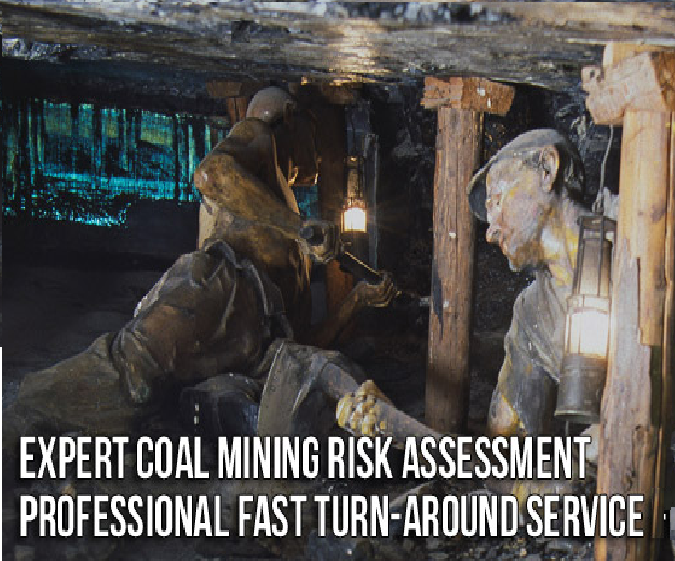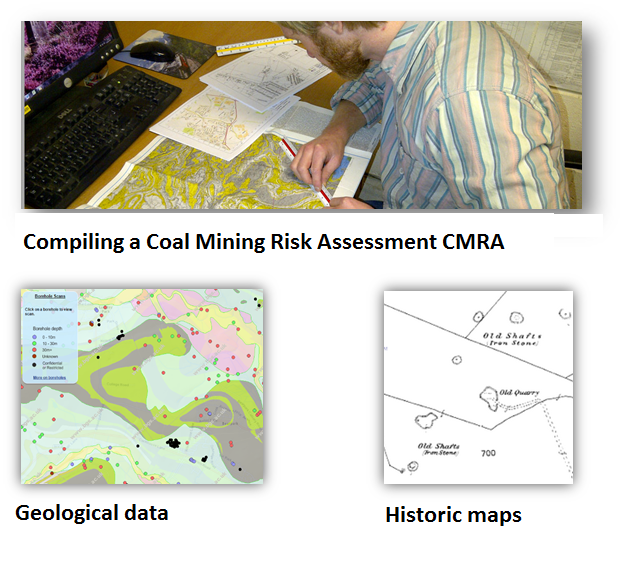Let Geoinvestigate quote for your next coal mining risk assessment (CMRA), coal mining investigation, mining report, mineshaft investigation, desk study, ground investigation, borehole investigation, site investigation, geotechnical, geo-environmental or contaminated land investigation in Bloxwich, Dudley, Walsall, The West Midlands and the Black Country. 
With over 18 years in the business, several regional offices offering a nationwide service including an office in Solihull, highly qualified and experienced professional staff, and its own drilling equipment, Geoinvestigate is best placed to give the most competitive and professional coal mining service.
If you need assistance with a planning application or a coal mining risk assessment (CMRA), a general site investigation or any of our other services please contact us at our Birmingham Office.
Call 01217 692691 or email enquiries @geoinvesigate.co.uk
Or if your enquiry is just about Coal Mining CALL FREE on 0800 1712011
The following article gives a brief background to historic mining activity in the Black Country and the services Geoinvestigate provide to enable house buyers, home owners, developers, architects and engineers to build safely in respect of the regions coal mining legacy.
Mining and Industrial History
The Black Country is an area of the West Midlands of England, north and west Birmingham of including Dudley, Walsall and Sandwell. Over the past two centuries it created a rich history of intensive industrial and economic activity which drove the Industrial Revolution and ultimately the expansion of the British Empire. It became one of the most industrialised parts of Britain with coal pits, coal mines, limestone, iron and sandstone mines, quarries, with iron foundries and steel mills.
The 14-mile road between Wolverhampton and Birmingham was described as “one continuous town” in 1785. It is believed that the Black Country name comes from the black soot from heavy industries that covered the area, although the 30-foot-thick coal seam close to the surface is another possible reason.
The Black Country has no defined borders but to traditionalists is defined as “the area where the coal seam comes to the surface – so Brierley Hill, West Bromwich, Oldbury, Blackheath, Cradley Heath, Old Hill, Bilston, Dudley, Netherton, Tipton, Wednesbury, parts of Halesowen and Walsall but not Wolverhampton, Stourbridge and Smethwick or what used to be known as Warley. Today it commonly refers to the majority of the four boroughs of Dudley, Sandwell, Walsall and Wolverhampton although it is said that “no two Black Country men or women will agree on where it starts or ends”.
Geological Definition
The Black Country Society defines the Black Country’s borders as the area on the thirty foot coal seam, regardless the depth of the seam. This definition includes Wolverhampton and Oldbury, which had many deep pits, and Smethwick. Sandwell Park Colliery’s pit was located in Smethwick and had ‘thick coal’ as shown in written accounts from 1878 and coal was also heavily mined in Hamstead further east. Smethwick and Dudley Port were described as “a thousand swarming hives of metallurgical industries” by Samuel Griffiths in 1872. The Black Country Society excludes West Bromwich (Birmingham conurbation) and Stourbridge geologically but includes them culturally, linguistically and in terms of heavy industry as both had iron and steel works, manufacturing industries and contributed enormously to the region. Warley is also included, despite lacking industry and canals, as housing for industrial workers in Smethwick and Oldbury was built there.
Another geological definition, the seam outcrop definition, only includes areas where the coal seam is shallow. Some coal mining areas to the east and west of the geologically defined Black Country are therefore excluded by this definition because the coal here is too deep down and does not outcrop. The seam outcrop definition excludes areas in North Worcestershire and South Staffordshire.
Borehole Investigation of Shallow Coal Mining
Over the past 5 months Geoinvestigate’s new compact microdrill system has proven its worth and that it’s just the answer for investigating The Black Countrys coal mining legacy. Microdrill offers restricted access, small diameter rotary open-hole drilling which is first and foremost SAFE, fast, clean, quiet, cost effective and environmentally friendly. New Microdrill has been designed for probing for shallow workings in limestone, sandstone and coal as well as locating mine shafts and sinkholes.
Recently Microdrill was in action in Newcastle on the Northumberland Coalfield. Having previously obtained a coal drilling permit from the Coal Authority to drill with water flush Microdrill was delivered to site on the back of a standard flatbed trailer.
Shallow mine working investigation of a housing estate in Newcastle
Access to the drilling positions in several gardens was tricky but achievable with Microdrill.
In accordance with Coal Authority Guidance on Managing the Risk of Hazardous Gases when Drilling or Piling Near Coal (essentially a Code of practice for safe drilling and piling through coal) water flush was in this instance considered to be the safest flushing medium. This is because there was assessed to be an unknown or undetermined gas risk as is so often the case in exploratory drilling works on the UK coalfields.
The Coal Authority normally stipulates small volume water injection flush for their internally managed exploratory drilling works because it ensures minimal risk to the public from hazardous gases including carbon dioxide, methane and carbon monoxide. In fact it is rare under the Coal Authorities strict safety policy for drilling through coal for them to permit anything else but water.

Probing for shallow mine workings and coal in Newcastle
The Coal Authorities strict policy with regard to water flush is something to be considered by site investigation companies when compiling a Coal Mining Risk Assessment (CMRA) or drawing-up a source-pathway-receptor based risk assessment for drilling permit application.
It should also be borne in mind by drilling contractors and consultants that the CA polices drill sites checking some 10% of drill sites per year to ensure compliance with the permit. A change in drill flush from that originally agreed with the CA would be a breach of terms and conditions and could result in prosecution.
New Microdrill has been demoed to the CA who gave it their nod of approval suggesting that in their opinion it was easily capable of reaching 50m and probably much deeper though up till now it has only been tested to 30m which is typically the limit for shallow mining investigation.
If you require a coal mining investigation, Phase 1 desk study, coal mining risk assessment (CMRA), Phase 2 intrusive site investigation, geotechnical investigation, ground investigation or you need a contaminated land survey or landfill gas survey, trial pitting or borehole drilling please do not hesitate to contact one of our regional offices. Our team are only too happy to assist with your enquiry and will ensure that you get our most competitive quote.



